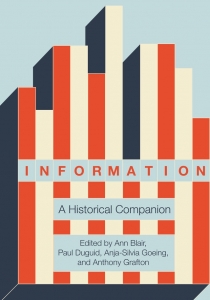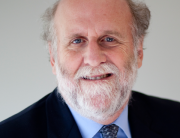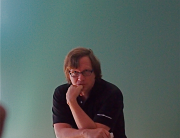Over centuries “information has shaped and been shaped by human society”, writes professor Paul Duguid at the start of the book “Information: A Historical Companion”. Duguid is one of the editors of this book that reconstructs the rise of human approaches to creating, managing, and sharing facts and knowledge. The book is organised in thirteen long-form chapters and more than hundred short-form entries in a list of thematic objects, tools and concepts that are critical for our understanding of information. Each long-form chapter discusses the role of information at an important point in time in the history, at a particular geographical setting. Written by an international team of experts, “Information: A Historical Companion” is a wide-ranging, deeply immersive and a large publication. In this episode of Bridging the Gaps I speak with Paul Duguid, a professor in the School of Information at the University of California, Berkeley and one of the editors of this book.
We start our discussion by exploring the concept of “information age” and addressing the question: has every age been an information age or is this title unique to this present time. We then discuss the significance of viewing history through the lens of information and viewing information through the lens of history. We also discuss our over reliance on information in the present time and the impact of increased volume and velocity of misinformation and disinformation on society. Professor Paul Duguid then discusses few entries in the list of thematic objects, concepts and tools. This has been a fascinating discussion, particularly for those who are keen to study our obsession with an informed existence.
Complement this podcast with the fascinating discussion with Professor Luciano Floridi on the Philosophy of Information and then listen to Professor Jürgen Renn on the Evolution of Knowledge and Rethinking Science for The Anthropocene.







Connect With Us